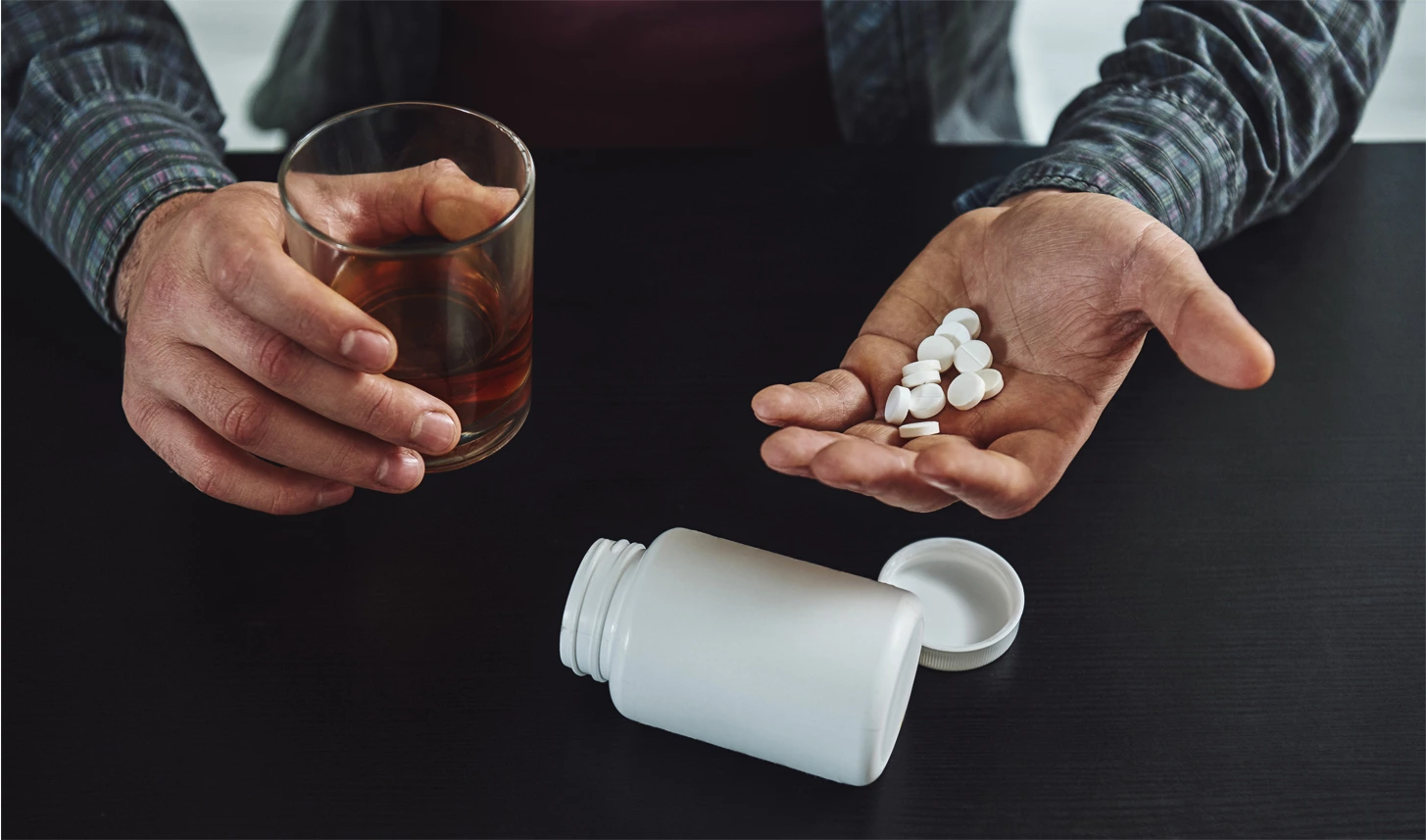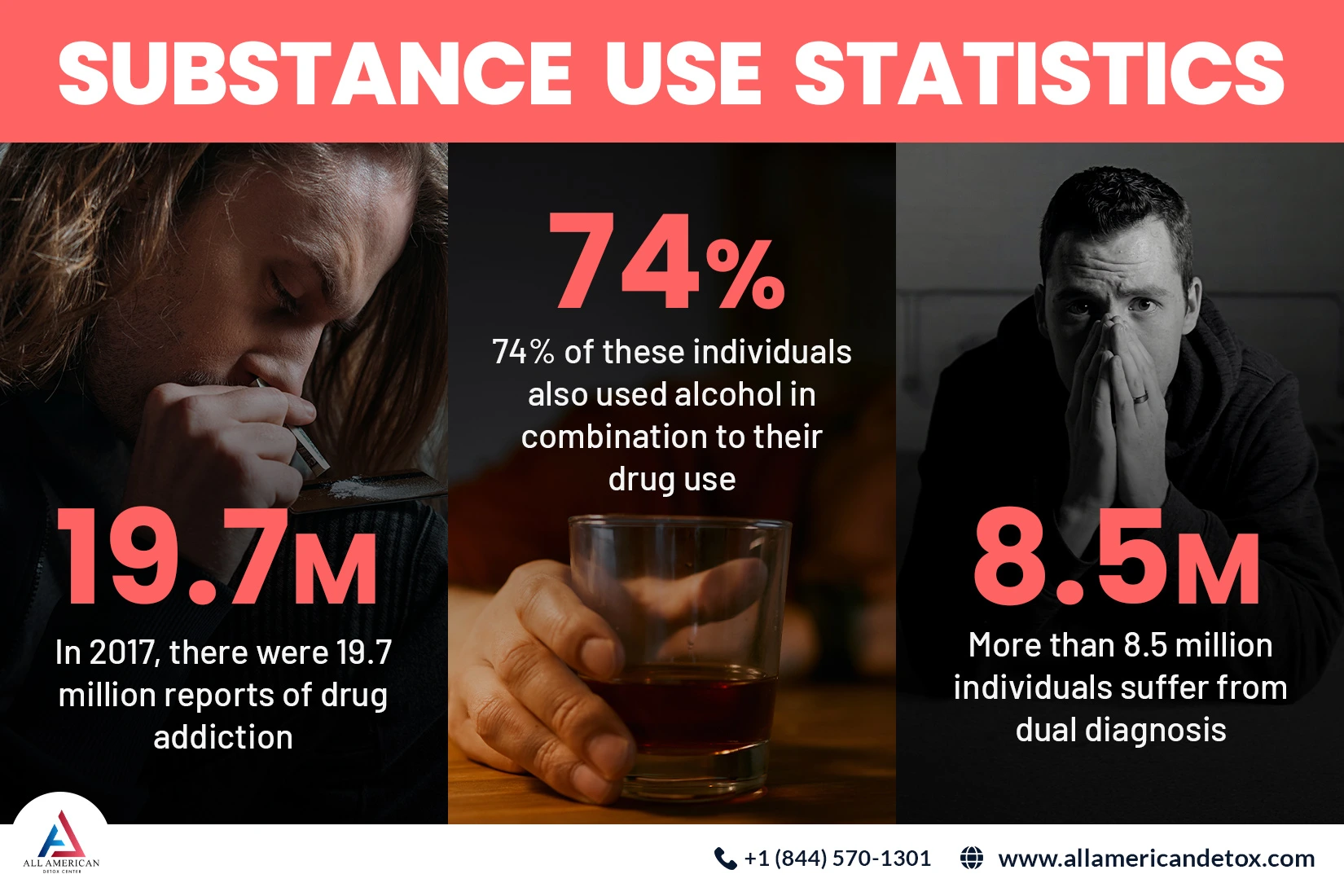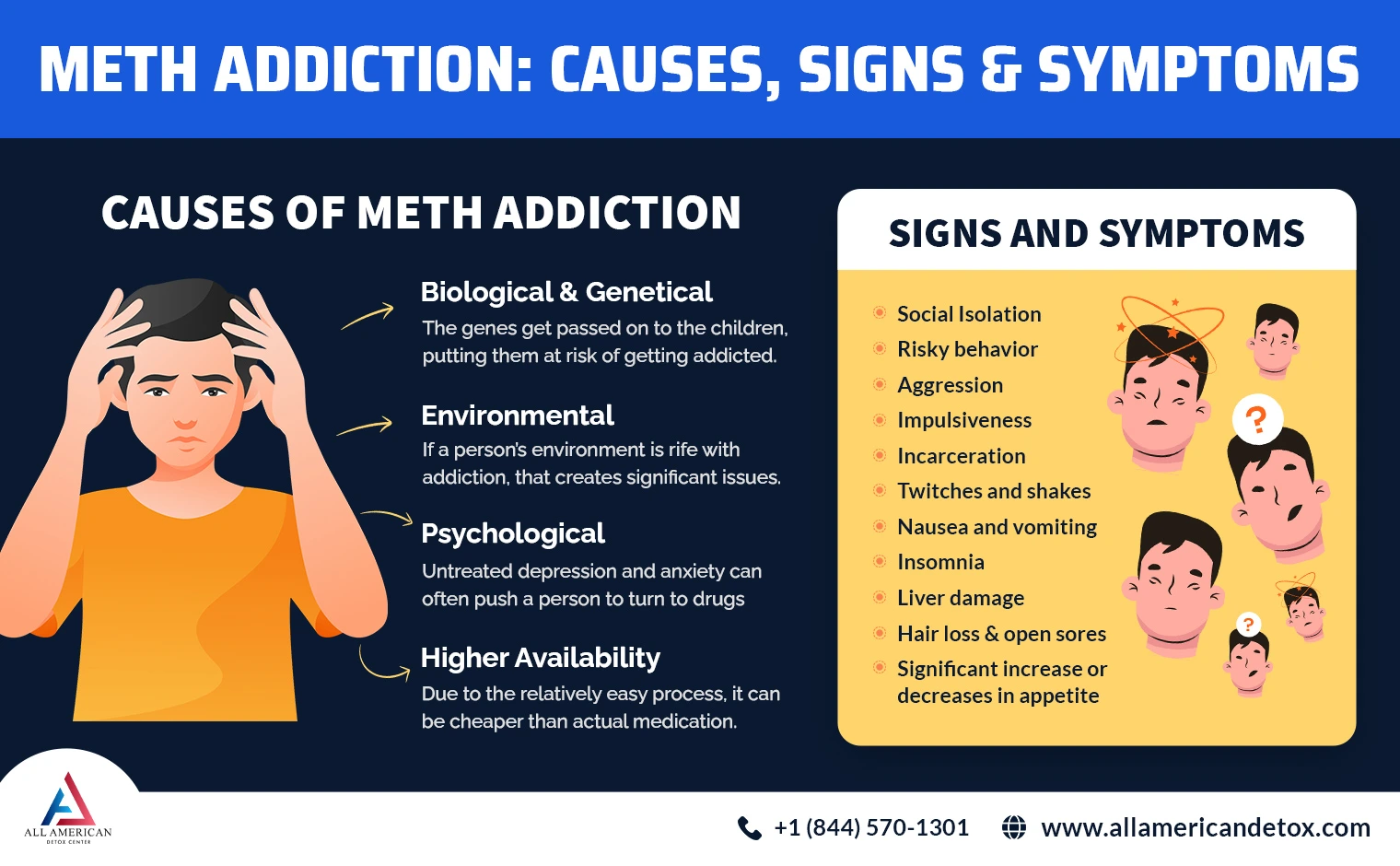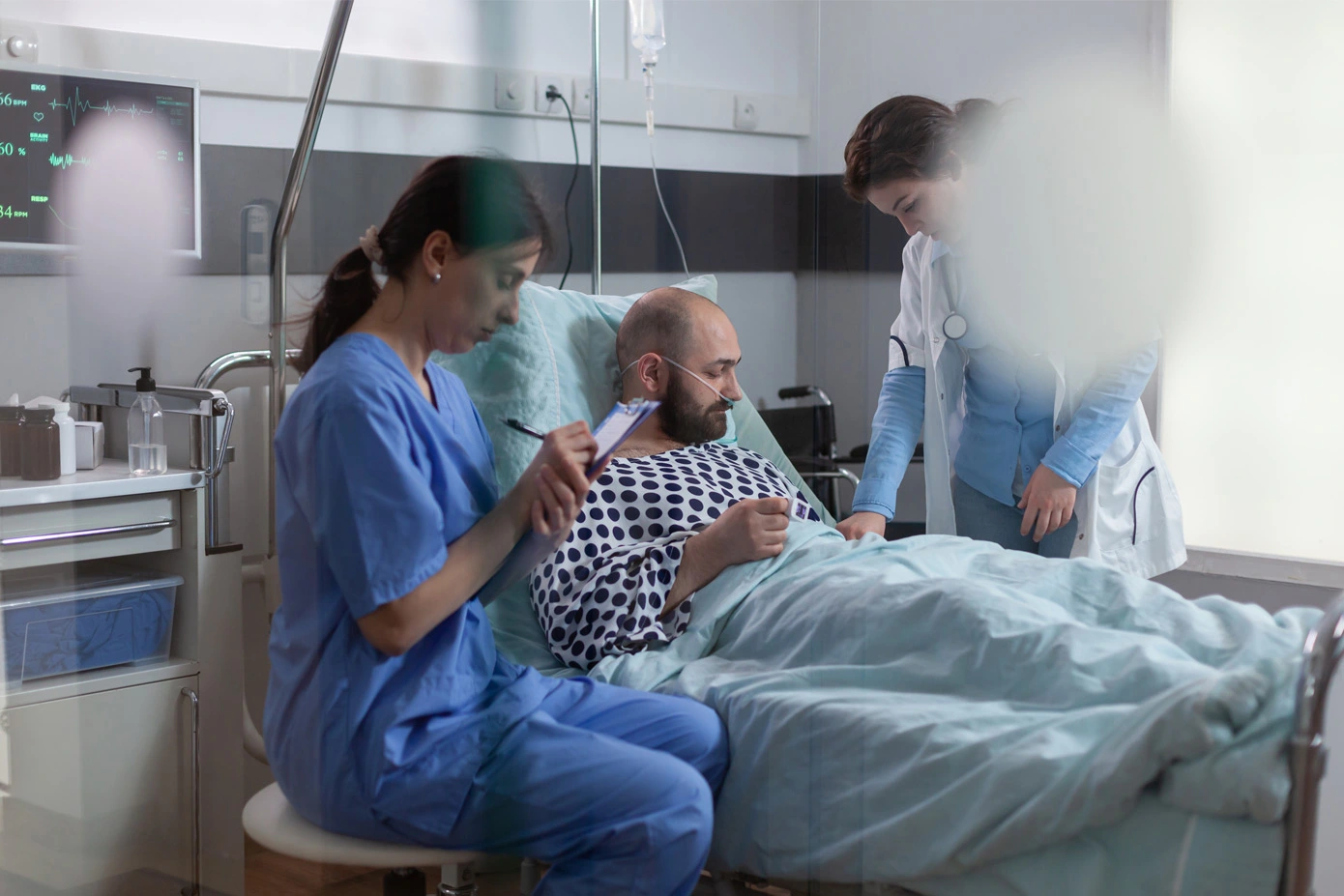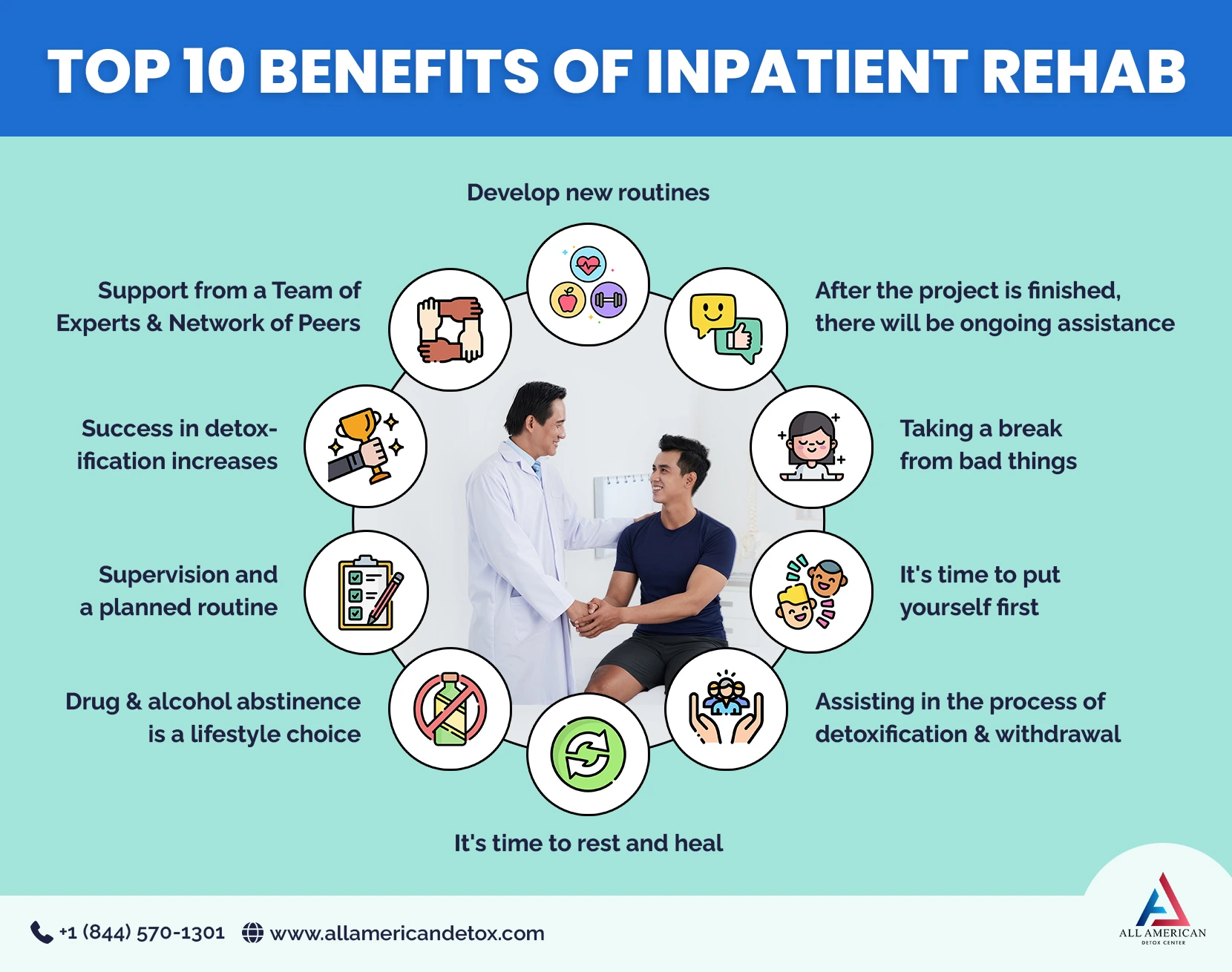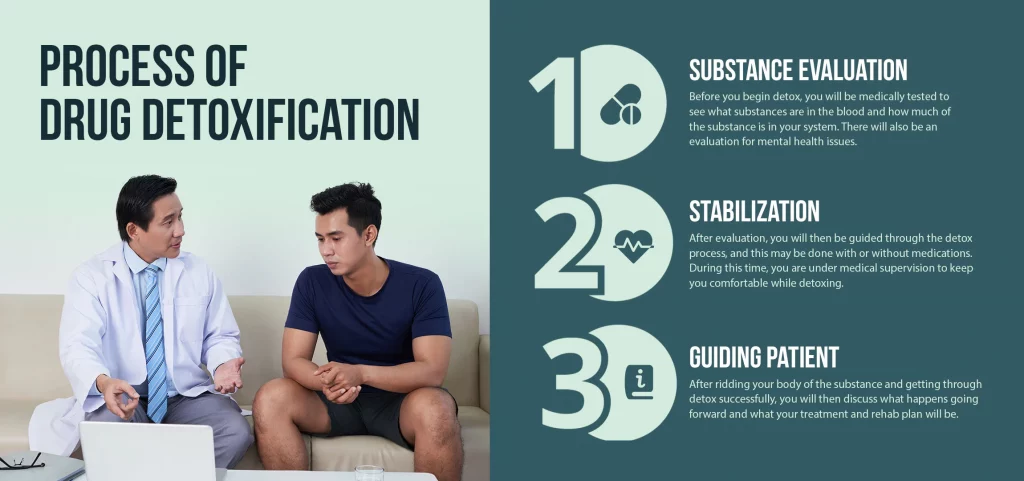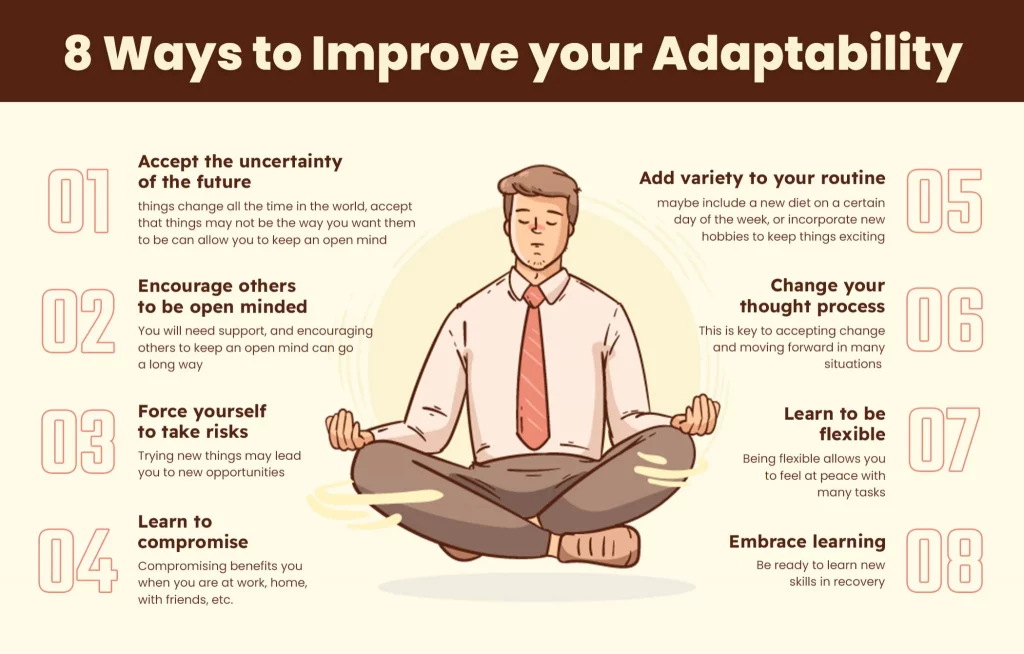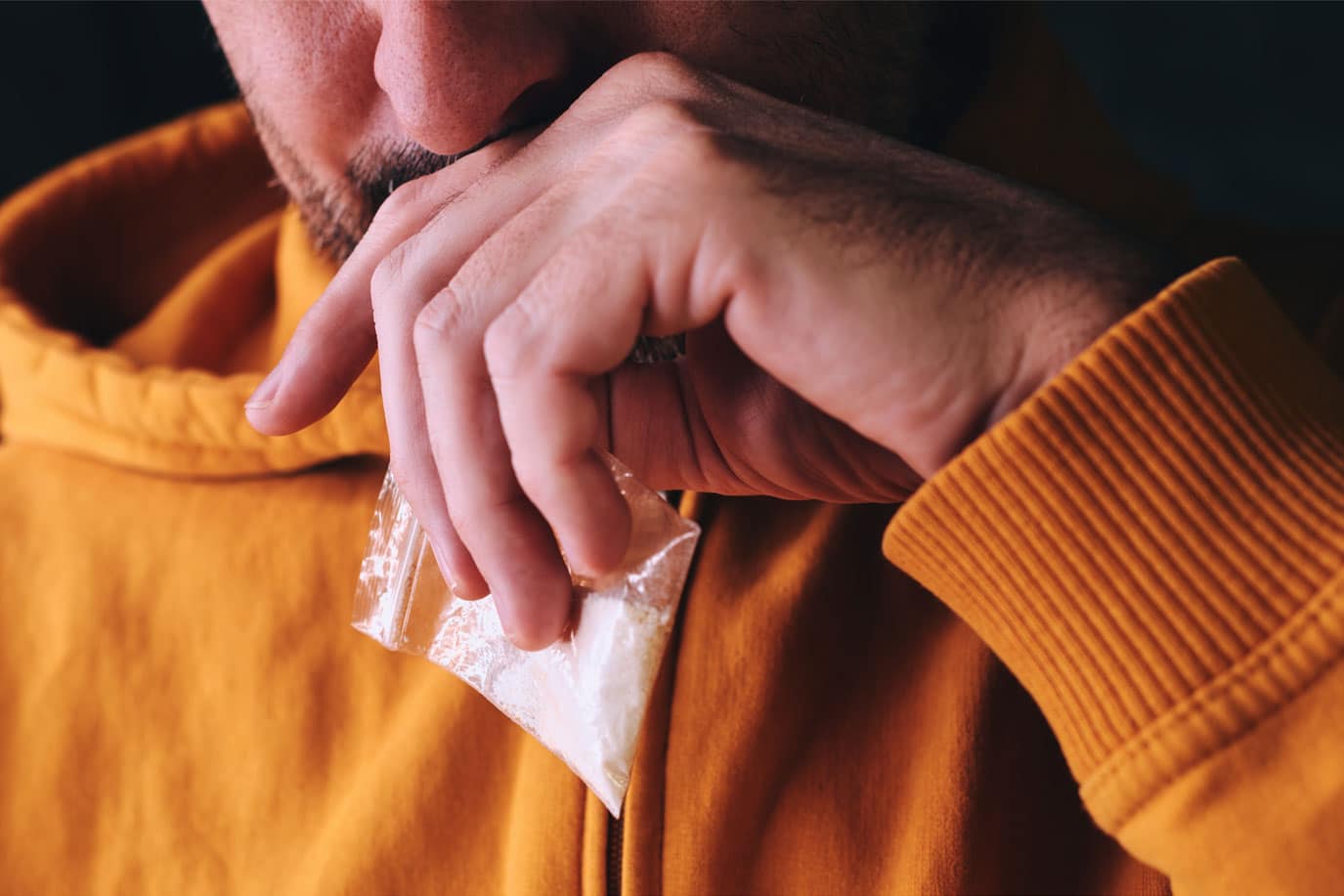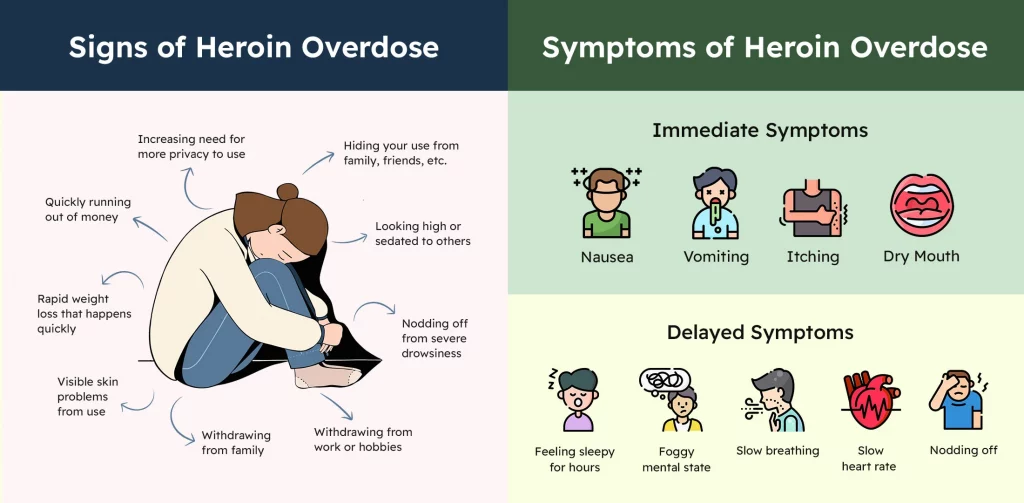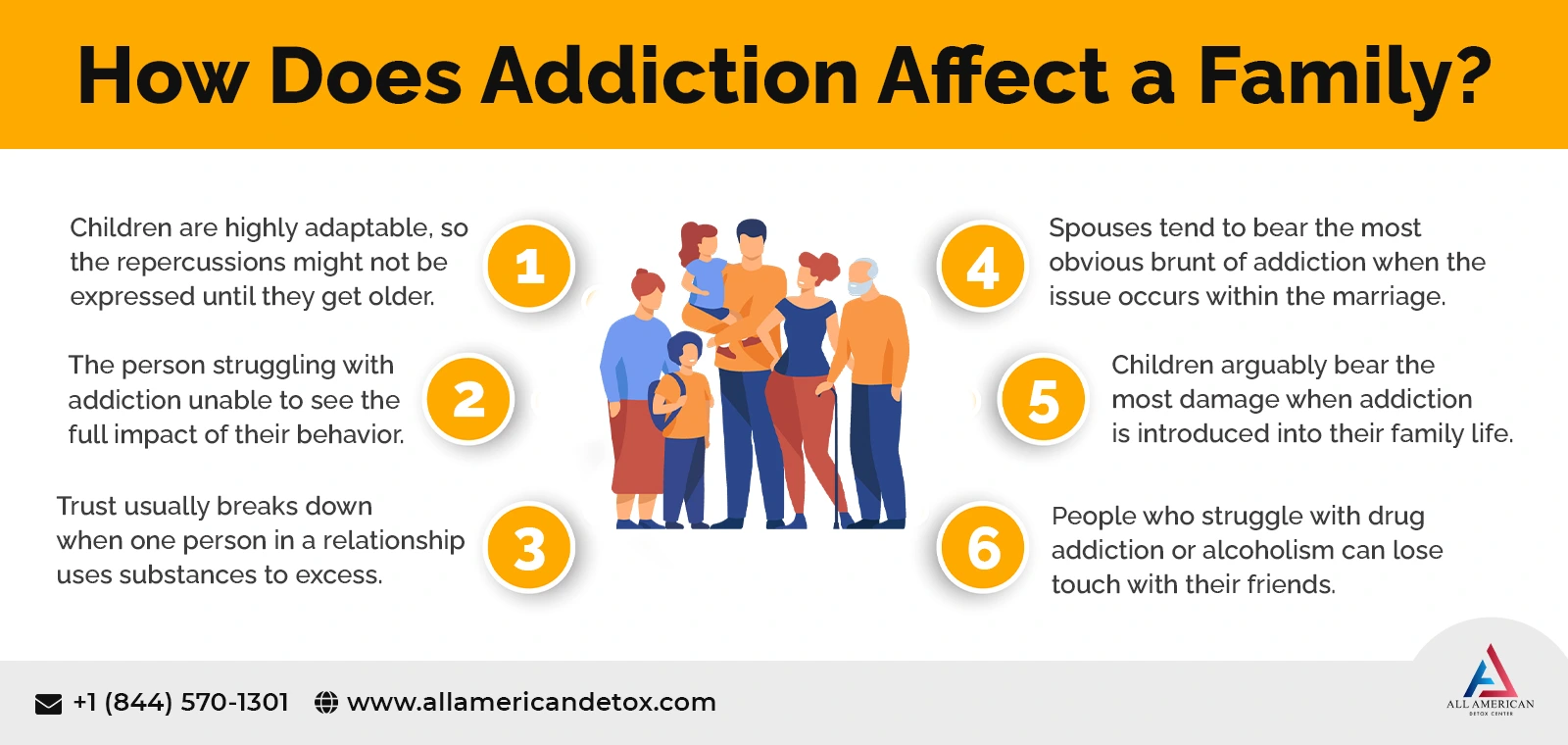Struggling with mental health may be quite challenging, especially if you do not have a good support system in your life. Adding substances to this mix can lead down a dangerous or even deadly path and make it more difficult when entering a dual diagnosis program. Finding help is possible though, for both mental health problems and substance use disorders.
Below, we will discuss what a dual diagnosis disorder is, and how it’s generally treated. If you or someone you know is dealing with a suspected dual diagnosis problem, read on for more information on detox and rehab for dual diagnosis.
All American Detox is an inpatient drug rehab center located in sunny Woodland Hills, California. This rehab center provides treatment for individuals suffering from dual diagnosis disorders and prides itself on helping the individual learn new healthy coping skills to deal with the daily stressors of life.
Introduction
So, what is a dual diagnosis disorder? Dual diagnosis is when you have a substance use disorder and a mental health issue occurring at the same time. It’s possible for a dual diagnosis disorder to occur before or after using substances long-term. [i]Such as drinking long term which may result in major depression or having anxiety, so you start taking prescription pills to ease the anxiety but end up becoming dependent on the pills.
People who suffer from dual diagnosis typically have higher depression or anxiety, leading to more and more drug use to try to alleviate the pain or trauma the individual lives with every day. Subsequently, substance use makes mental health issues much worse, and vice versa.[ii]
Almost one-third of all people who suffer from a mental health illness also abuse substances, implying that additional treatment facilities are needed to identify and treat both diseases together.[iii]
What are Dual Diagnosis Treatment Programs?
Dual diagnosis treatment programs work by treating both the mental health problem and the substance abuse at the same time. There are several different approaches to treating dual diagnosis. One approach is by starting out treating one disorder first. Another approach is treating both disorders at the same time in a different setting, and lastly treating them together but in the same setting.[iv]
When you enter an inpatient rehab drug center, the very first thing that will happen is you will be assessed by medical professionals. Next, you will enter detoxification for drug and alcohol abuse to help rid your body of harmful chemicals that drugs leave in your system, giving you a better chance when entering inpatient care. During detox and inpatient rehab, you will receive medications that help you when you are in pain, as well as to help you stay away from substances.
Things like psychotherapy, support groups, medications, behavioral therapy, as well as 12 step meetings are also beneficial ways to help treat dual diagnosis. [v]Treating dual diagnosis is oftentimes more complicated and may result in a higher risk of relapse.[vi]This is due to the chemical imbalances that occur with long-term substance abuse as well as the imbalances occurring from mental health problems.
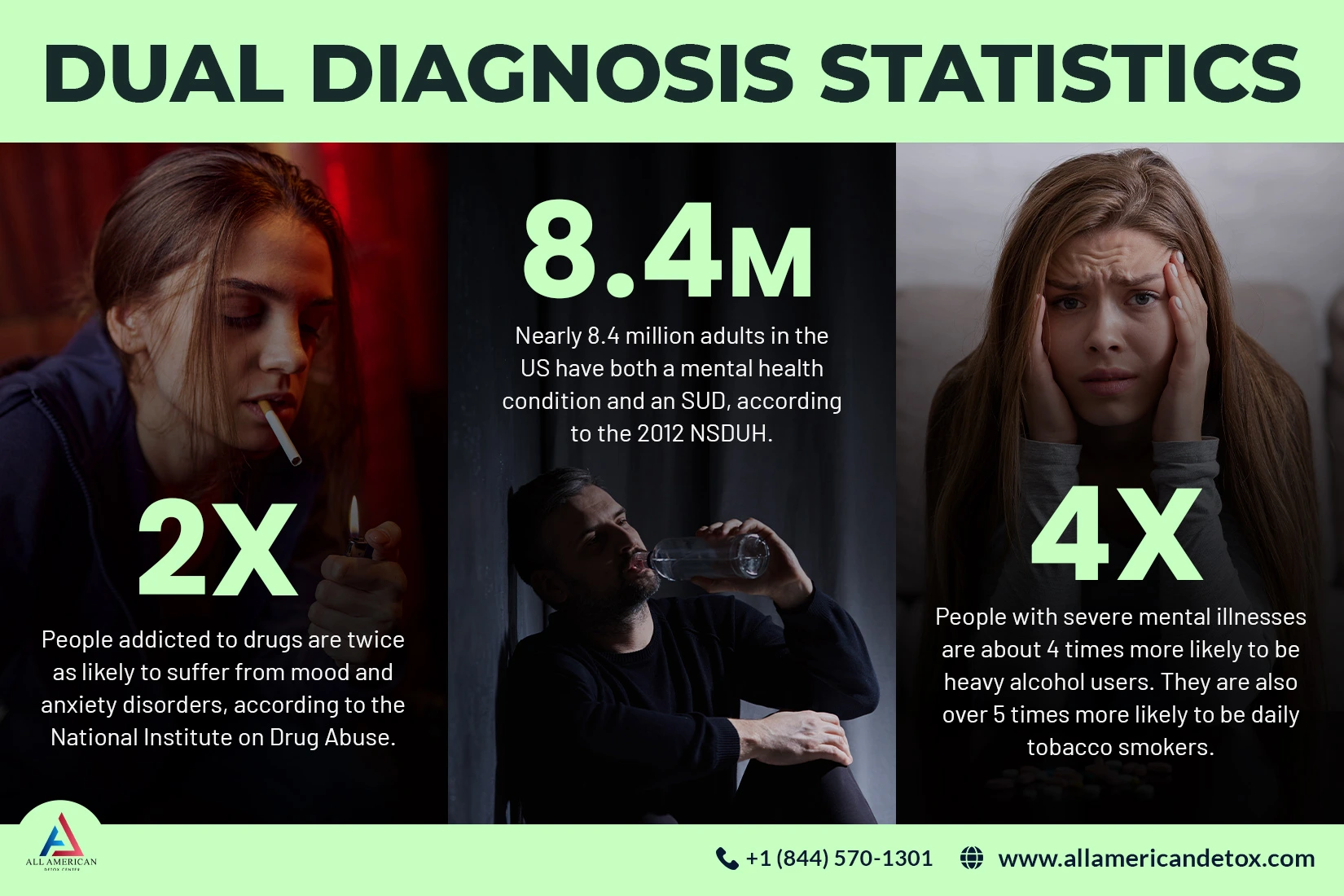
Are You in Need of Dual Diagnosis Treatments?
Individuals with mental health problems such as depression, anxiety, or bipolar disorder are at a much higher risk for developing substance use disorders from cocaine, heroin, PCP, alcohol, or meth.[vii] Its also important to note that men, military veterans, and individuals of lower socioeconomic status are at higher risk for developing dual diagnosis disorders.[viii]
If you fit any of the criteria above, it may be time to consider getting help by entering a dual diagnosis treatment center. Entering dual diagnosis treatment programs may seem scary at first, but they will help treat both disorders and help you re-enter normal society again while maintaining sobriety.
Dual Diagnosis Treatment at All American Detox
All American Detox Center offers many medications for drug treatment as well as inpatient care in their luxury buildings, and specialized counseling services fit for the individual’s needs. If you are ready to accept treatment today, you can call All American Detox at (844) 570-1301 to get started or to obtain more information about their services.
Conclusion
It’s important to know when picking the right treatment center for you is that not all treatment facilities treat mental health and substance abuse. Although dual diagnosis treatment is becoming more popular among rehab centers, it’s crucial to make sure this center treats mental health and drug or alcohol abuse together if that’s the treatment you need.
Mental health is very important, and when you are not well mentally this can allow for more negative reactions or decisions, such as using substances to cope. It is never easy to deal with these issues on your own, and you shouldn’t ever have to. If you are looking for help in treating your dual diagnosis disorder, contact the drug rehab center immediately and get help!
Citations
Luxury Alcohol & Drug Rehab Center Los Angeles | Detox in California. (2022). Retrieved 11 February 2022, from https://allamericandetox.com/

